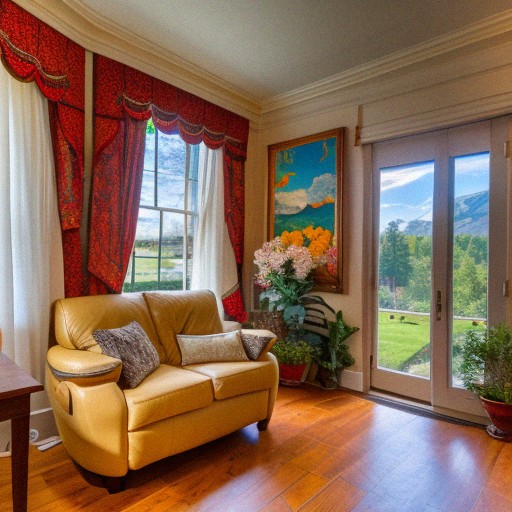Preparing a Room for Painting
by siteadmin

Preparing a Room for Painting
Painting is a great and relatively simple way to freshen up a room and make it look more inviting. The key to a successful painting job is to properly prepare the room and ensure there is good ventilation. This article will provide eight steps to prepare a room for painting.
1. Start with a Clean Slate
Before you even begin to think about getting out the paint, you should start by ensuring the room is completely clean. Start by removing any furniture and decorations from the room, if possible. Then, vacuum and sweep the floor, removing any dust and debris. Clean the walls and baseboards, paying special attention to trim, windows, and doors.
2. Patch & Repair
Once the room is clean, you should also inspect it for any minor repairs that need to be taken care of prior to painting. Check for any cracks or holes in the walls and caulk them. Any smaller repairs should be patched. If you’re dealing with wallpaper, you may even want to remove it and start fresh.
3. Protect the Floors
Painting the walls and trim will take a bit of time, and you don’t want to get paint on your floors in the process. Be sure to lay down drop cloths in order to ensure the floor is protected. This is especially important if you’re dealing with wood floors, tile, or carpets.
4. Prep the Walls
Before you can begin painting the walls, you need to prep them first. Begin by removing any switch plates and outlet covers. Then, use sandpaper to lightly sand the walls. This will help the paint to stick. Finally, use a damp cloth to remove any dust you created during the sanding process.
5. Prime the Walls
In addition to prepping the walls before painting, you should also prime them. Priming acts as a base for the paint and helps to cover any imperfections. You’ll want to use a brush or roller to apply the primer to the walls.
6. Add Masking Tape
If you’ve got any intricate trim or molding on the walls, you’ll want to mask it off with painter's tape. This ensures that the trim and molding won’t get painted over and will still look good after the painting is complete.
7. Open the Windows
It’s important to ensure the room has good ventilation while you’re painting. Open windows to allow for the natural flow of air and help to keep the room from becoming stuffy. You may also want to consider using a fan to help remove any lingering odors from the primer or paint.
8. Choose Your Colors
The fun part—choosing the colors! If you’re painting one color on the walls, consider adding a complementary color to the ceiling. This will help to create more interest in the room. For more intricate designs, you may want to use two or more colors.
Conclusion
If you’re looking to freshen up a room, painting is a great way to go. By following the steps outlined in this article, you'll be able to ensure your painting job is successful and your room looks amazing. Just remember to start with a clean slate, patch and repair any minor damages, protect the floors, prep the walls, prime the walls, add masking tape, open the windows, and choose your colors.
https://www.google.com/maps?cid=14114607807017796080
https://www.regentpainting.com/
Interior Painting Shreveport LA
Exterior Painting Shreveport LA
Cabinet Refinishing Shreveport LA
Decking and Fence Shreveport LA
Parking Lot Painters Shreveport LA
Decking and Fence Shreveport LA
pressure washing Shreveport LA
Preparing a Room for Painting Painting is a great and relatively simple way to freshen up a room and make it look more inviting. The key to a successful painting job is to properly prepare the room and ensure there is good ventilation. This article will provide eight steps to prepare a room for painting. …
Recent Posts
- Sophisticated Exterior Painting Methods: Advice for a Perfect Coat
- Lou’s Painting Company Sets New Standard for “Above and Beyond” Painting Services
- Supreme Coats Painting and Epoxy: Redefining Home Painting in Lapeer, Oxford, and Lake Orion
- Overland Park KS Painters Provides Insight: Essential Questions to Ask Your House Painter
- Is Stamped Concrete Cheaper than Regular Concrete? Debunking Myths with Columbus Stamp Concrete
